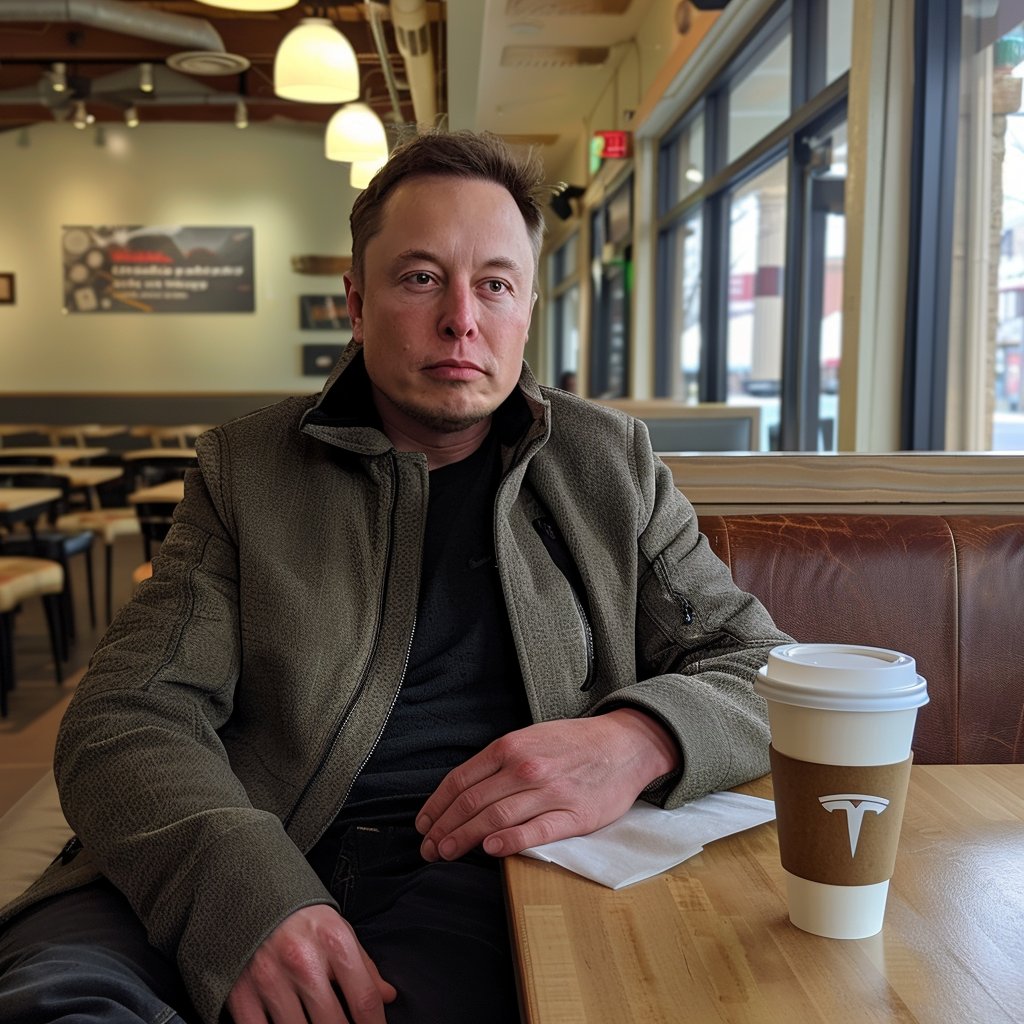Elon Musk’s rise from a tech entrepreneur to one of the most transformative visionaries of the 21st century is nothing short of extraordinary.
With each new venture, he continues to challenge not only industry norms but also the fundamental limitations of physics, technology, and ambition.
While many CEOs are content with increasing market share or cutting costs, Musk is busy building reusable rockets, designing hyperloop systems, and planning for human life on Mars. For him, gravity, like every other barrier, is something to be reimagined, reengineered, and ultimately conquered.
When SpaceX was founded in 2002, the idea of a private company launching rockets into orbit—let alone sending them to the International Space Station or landing them back on Earth—was considered fantastical.
The early days were filled with skepticism and financial strain. SpaceX’s first three rocket launches failed, and with each misfire, investors and critics doubted Musk’s approach. But rather than retreating, Musk doubled down.
The fourth launch succeeded, a critical moment that changed the perception of what private enterprise could achieve in space.
Today, SpaceX is not only a respected player in the aerospace industry—it’s a pioneer. Its Falcon 9 rockets regularly deliver satellites into orbit and resupply the International Space Station.
Its Starship vehicle, currently in testing, is envisioned as the first spacecraft capable of carrying humans to Mars. Reusability is the cornerstone of this vision.
Traditional rockets were discarded after a single use, but Musk saw this as wasteful and obsolete.
By creating rockets that can land vertically and be flown again, he has slashed the cost of space access, making space travel a realistic, scalable venture for the future.
Beyond cost efficiency, Musk’s vision is deeply rooted in a philosophical and existential belief: that humanity must become a multiplanetary species.
He has long argued that relying on a single planet makes us vulnerable to extinction, whether from natural disasters, pandemics, or our own destructive tendencies.
Colonizing Mars, in Musk’s mind, is not just an adventure—it’s a survival imperative.
To skeptics, it sounds like science fiction. To Musk, it’s a problem of engineering and logistics, one that he intends to solve within this generation.

Back on Earth, Musk’s other ventures are equally daring. Tesla has revolutionized the automotive industry, pushing electric vehicles (EVs) from a niche curiosity into a global movement. Early EVs were mocked for their limited range and underwhelming performance.
Tesla flipped that narrative by introducing cars that were not only electric but also fast, stylish, and tech-savvy.
The Model S, Model 3, and other vehicles set new standards for range, efficiency, and user experience. In doing so, Tesla didn’t just succeed—it forced the entire auto industry to pivot.
Legacy manufacturers are now scrambling to electrify their fleets, following a path Tesla laid years ahead.
Tesla’s impact isn’t limited to cars. Through its solar and battery divisions, the company is working to decentralize and decarbonize energy production.
Musk envisions a future where homes generate their own power using solar roofs, store it in Tesla Powerwalls, and charge their vehicles without ever relying on fossil fuels.
It’s a seamless energy ecosystem, and once again, he’s turning a dream into a practical, market-driven reality.
But Musk’s genius lies not just in technical execution, but in how he dares to ask different questions. Where others see limitations, he sees possibilities.
The question is never “can it be done?” but “how do we make it happen?” This mindset is perhaps best captured in the development of the Boring Company, a tunnel-digging startup aimed at solving urban congestion.
Musk saw the frustration of traffic and decided the answer wasn’t just smarter cars but rethinking the entire concept of roads and space beneath cities.

Then there’s Neuralink, a venture into brain-computer interfaces, which aims to merge human cognition with artificial intelligence.
It sounds like something ripped from the pages of cyberpunk literature, but Musk believes it’s necessary to ensure humans can keep up with the exponential growth of AI.
His goal is to prevent a future where machines evolve beyond human control.
By enhancing our own minds, he argues, we can retain agency in a future shaped by intelligent machines.
Critics often point out that Musk overpromises, that his timelines are unrealistic, and that he sometimes engages in showmanship that overshadows substance. These criticisms aren’t without merit—many of his deadlines have slipped, and his public persona is often polarizing. Yet, it’s undeniable that even when he misses a mark, the trajectory he sets often reshapes entire industries. Musk doesn’t just build products—he builds momentum. He forces competitors, regulators, and even governments to think bigger and move faster.
In a world increasingly governed by caution and short-term returns, Musk’s willingness to take bold risks feels like a throwback to the age of explorers and inventors. He’s a modern-day fusion of Thomas Edison and Nikola Tesla, a paradoxical figure who thrives in spreadsheets and stardust alike. He challenges physics with rockets, economics with open-source patents, and technology with a relentless pace of innovation.
This audacity doesn’t come without costs. Musk’s leadership style can be intense, and the pressure within his companies is immense. Employees describe a culture of high expectations and breakneck speed. But it’s also a place where boundaries are tested, and breakthroughs happen. For Musk, the stakes are too high to aim low.
As humanity looks to the stars, questions remain. Will Mars colonization happen in our lifetime? Can EV infrastructure keep pace with demand? Will AI evolve too quickly? In each of these frontiers, Musk has placed himself at the center. He doesn’t pretend to have all the answers, but he refuses to accept that the future should be dictated by inertia or fear.
What sets Musk apart isn’t just his intellect—it’s his imagination. He dares to reimagine the world not as it is, but as it could be. Whether it’s escaping Earth’s gravity, building cities on other planets, or transforming the way we move, think, and live, Elon Musk continues to prove that impossible is merely a challenge waiting for a blueprint.
And in his mind, gravity is just another problem to solve.
News
“BANKRUPT BRITAIN?!” – Labour’s Plan to WATER DOWN Its Already Flimsy Welfare Reforms Could HURL the UK Into TOTAL FINANCIAL MELTDOWN
LABOUR is making a complete mess of welfare. Panicked and driven Left-wards by Reform’s surge, the Government is wobbling on the…
“TURKISH HOTEL TERROR!” – Brit Dad Brutally BEATEN TWICE in Front of His Kids… Family Holiday Spirals into a Living Nightmare
The alleged attackers reportedly had a feared reputation A DAD-OF-TWO said he was attacked twice in front of his kids…
“FED to PIRANHAS!” – 31-Year-Old Mum of 3 Vanishes After Ex’s Savage Revenge… Body Still Missing in Brazil
A MAN was caught on CCTV putting his former wife’s body in the boot of a car before coldly dumping…
“Dinner Party of DEATH!” – You Won’t Believe Erin Patterson’s Gross Confession After Her ‘Killer’ Mushroom Meal Claimed 3 Lives
MUSHROOM cook Erin Patterson who is accused of killing three people with a poisoned beef wellington graphically described how she…
HOLIDAY BLOODBATH! Teen SLASHED to Death with Broken Bottle in Lisbon—UK Tourist (27) DRAGGED Back to Portugal in Dramatic Midnight Extradition
Daniel was reportedly attacked while trying to defend a friend A BRITISH tourist has been arrested and extradited to Portugal…
LIVERPOOL PARADE CARNAGE! 53-Year-Old Driver PLOUGHS into Crowd—47 Injured, 4 Kids Hurt—Police Shout “NOT TERROR!” Fans in SHOCK
Emergency crews arrived to find people lying injured in the road and some trapped under the car FOUR children were…
End of content
No more pages to load












